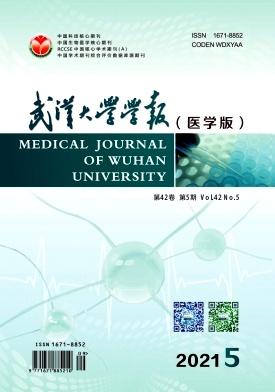{"title":"Application of remote fetal heart rate monitoring during the pandemic of COVID‑19","authors":"Y. Xu, F. Huang","doi":"10.14188/j.1671-8852.2021.0006","DOIUrl":null,"url":null,"abstract":"Objective: To explore the application of remote fetal heart rate monitoring during the pandemic of COVID‑19. Methods: The rate of cesarean section, the incidence of neonatal asphyxia, the times of self‑care, the false positive rate, and the degree of anxiety were compared between the remote fetal heart rate monitoring group and control group. Results: There was no significant difference in cesarean section rate and neonatal asphyxia rate between the two groups( P >0.05). The frequency of self‑care and the incidence of false positive in the remote fetal heart monitoring group were better than in control group( P <0.01). Compared with the remote fetal heart rate monitoring group, the control group were more likely to be anxious( P <0.01). Conclusion: Remote fetal heart rate monitoring is suitable as an effective supplement for hospital prenatal examination during the epidemic period, and it has good application prospects. © 2021, Editorial Board of Medical Journal of Wuhan University. All right reserved.","PeriodicalId":35402,"journal":{"name":"武汉大学学报(医学版)","volume":"48 1","pages":"733-736"},"PeriodicalIF":0.0000,"publicationDate":"2021-01-01","publicationTypes":"Journal Article","fieldsOfStudy":null,"isOpenAccess":false,"openAccessPdf":"","citationCount":"0","resultStr":null,"platform":"Semanticscholar","paperid":null,"PeriodicalName":"武汉大学学报(医学版)","FirstCategoryId":"3","ListUrlMain":"https://doi.org/10.14188/j.1671-8852.2021.0006","RegionNum":0,"RegionCategory":null,"ArticlePicture":[],"TitleCN":null,"AbstractTextCN":null,"PMCID":null,"EPubDate":"","PubModel":"","JCR":"Q4","JCRName":"Medicine","Score":null,"Total":0}
引用次数: 0
远程胎儿心率监测在COVID - 19大流行期间的应用
目的:探讨远程胎儿心率监测在COVID - 19大流行期间的应用。方法:比较远程胎心监测组与对照组的剖宫产率、新生儿窒息发生率、自我护理次数、假阳性率、焦虑程度。结果:两组剖宫产率、新生儿窒息率比较,差异均无统计学意义(P < 0.05)。远程胎心监护组自我护理频次和假阳性发生率均优于对照组(P <0.01)。与远程胎心监测组相比,对照组出现焦虑的可能性更大(P <0.01)。结论:远程胎心监测适合作为流行期医院产前检查的有效补充,具有良好的应用前景。©2021,武汉大学医学杂志编辑委员会。版权所有。
本文章由计算机程序翻译,如有差异,请以英文原文为准。


